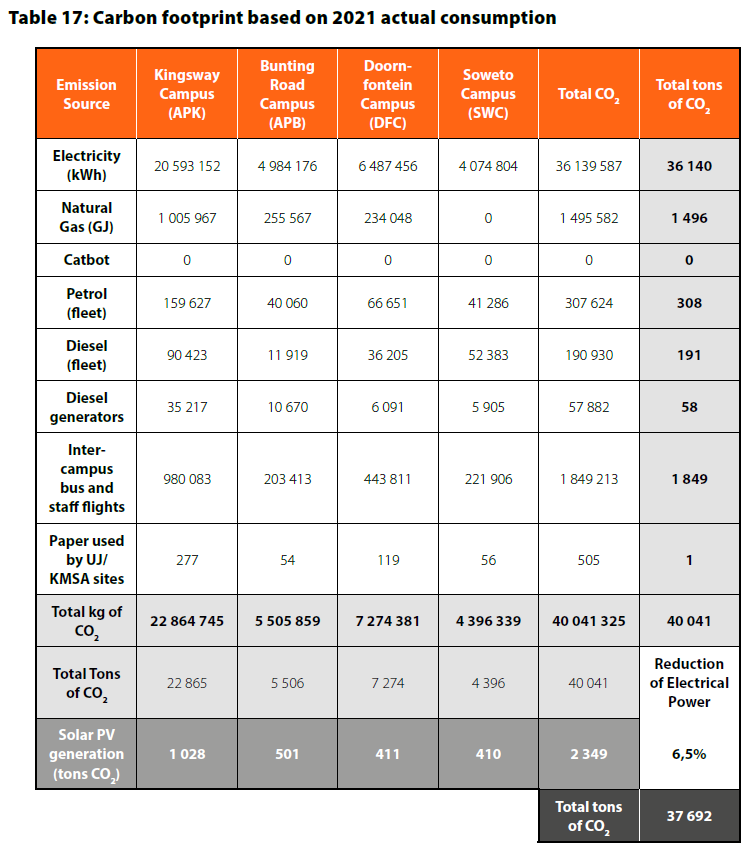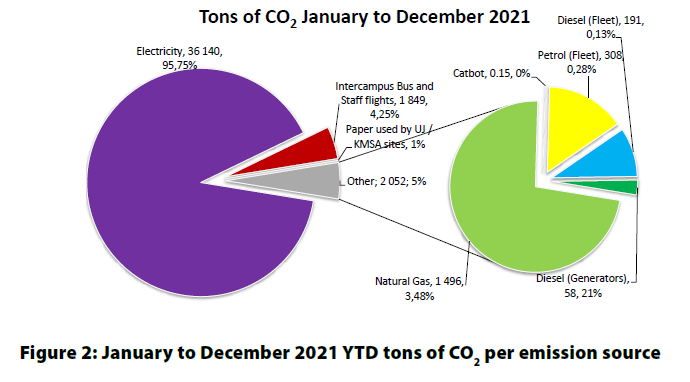Also, refer to page 12 of the UJ Energy Resource Waste Sustainability (ERWSus) Plan and Policy Draft 2022-2025 Feb 2022:
“In South Africa there are already pieces of legislation that UJ must comply with to be considered a responsible citizen in terms of sustainability, these are viz.:
> National Environmental Management Act (2015)
UJ’s activities:
> Required by 31 Dec 2019 registration of all businesses that have activities that affect the environment
> Carbon Tax Act (2019)
UJ’s activities:
> Requires 3 phases before 2022
> First phase requires registration of all carbon generation due to power generation in broadest sense
> Will require active monitoring of standby generators since tax will be based on either IPC rules or proven actual usage
> Requires a full database of generation facilities including type, power generation, fuel usage and hours used in a tax year
> Already compiling list of generators and details needed for registration”



